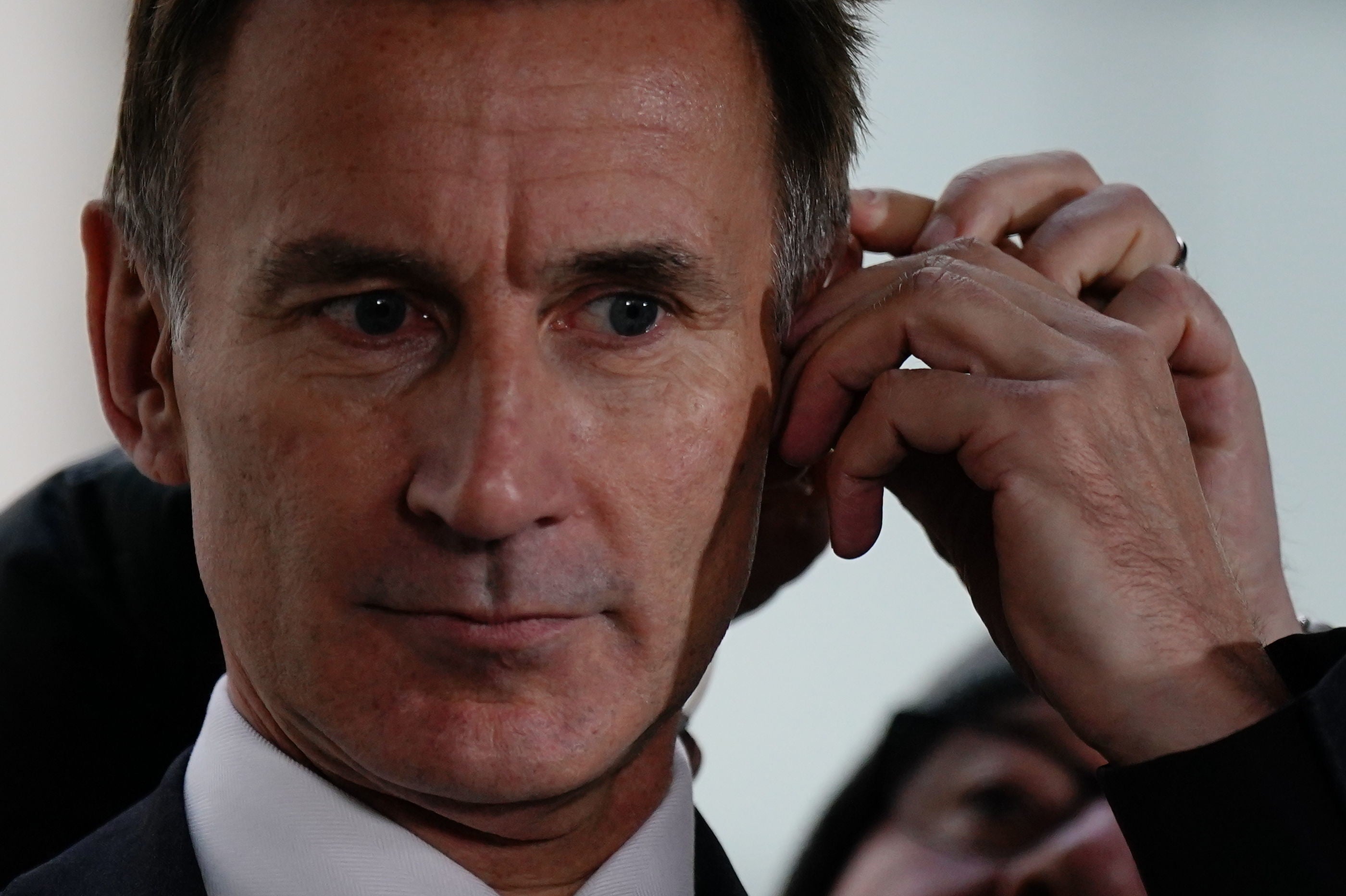Public sector staff will suffer most from this autumn Budget
Letters to the editor: our readers share their views. Please send your letters to letters@independent.co.uk

After a decade of austerity-linked pay freezes and below-inflation rises (effectively pay cuts) public sector staff are earmarked for pay rises of no more than 2 per cent for the next two years when inflation is still likely to be close to double figures.
I, like thousands of others, work for local authorities whose budgets – and therefore staffing levels – have been cut to the bone. I work far in excess of my contracted 37 hours per week, often close to 50, with these additional hours being unpaid. I volunteered during Covid to work with rough sleepers to keep them and the public safe – and caught Covid and community-acquired pneumonia. Yet we are the default target group when it comes to making cuts, whilst the non-doms and banker bonuses are protected.
It makes me laugh when you hear the chancellor on one hand promising to provide high-quality public services, and with the other cutting back the wages of those he expects to deliver them.
Nice to see you have our backs and have devoted a whole sentence to our predicament at the bottom of page 23 of today’s edition!
Anonymous
Address supplied
What a relief that we have non-doms, eh?
What a relief to learn – thanks to Jeremy Hunt – that the non-dom tax loophole helps our economy. Just imagine how dire our predicament would be if some overzealous politician (or even worse: a borderline socialist) had abolished such altruistic legislation years ago.
We wouldn’t be now looking at those imminent sunlit uplands and glorious futures for another 30 years at least. Aren’t Conservative chancellors just great.
Robert Boston
Kent
The truth about Brexit
We need to remind ourselves and Keir Starmer, that only 37.4 per cent of the UK electorate actually voted to leave the EU, so 62.6 per cent did not. Starmer is therefore wrong to say the “the people decided” – the referendum bar was set too low and should have been over 50 per cent of the electorate. Then there could be no argument with the result.
Alan Froy
Southend-on-Sea
Losing patience with the government
I read Ed Dorrell’s column (Labour has a great new ‘clunking fist’ in Reeves, 18 November) and after the delivery of Jeremy Hunt’s dire autumn statement, it was good to see Rachel Reeves rise to her feet with her confrontational but smart fiscal take on it.
Dorrell is correct that the failure to lay much of the blame on the mini-Budget crassly orchestrated by Liz Truss and Kwasi Kwarteng is wearing thin with the British public, and establishing the fact that Labour would not have gone anywhere near this strategy plays to the party’s economic strength.
She is right that Labour have to be truly authentic but not kamikaze in their spending plans and commitments and come the next election, they might indeed be in power to reaffirm the virtues of public spending and show that there is a different and credible way to do things. Because the public are fast losing patience and belief in this latest Conservative administration.
Judith A Daniels
Great Yarmouth
I’m concerned about windfall taxes
Measures in the autumn statement to help the low-paid and the most vulnerable should be supported. However, I do have concerns over windfall taxes on oil. At this time “UK PLC” needs incentives for the companies to invest every penny of their “windfalls” into oil and gas expansion in the North Sea. That way lies greater self-sufficiency and greater resilience, complete with lower prices for UK industry given the role of oil as an industrial feedstock.
The end result will be improved tax revenues based upon genuine success, not short-term tax raids. Finally, the profile of the governing party will be broadened with more jobs in oil and its supply chains in both Scotland and the red-wall North. By lucky coincidence, more jobs in these areas will lessen housing pressure in the blue-wall South.
John Barstow
Address supplied
Decarbonise the economy
COP 27 concludes today (Friday) and it remains to be seen if anything meaningful can be agreed.
The 2015 Paris Agreement committed to keep global warming to within 1.5C. We are now on track to exceed this target by almost five times.
Now more than ever before governments and industry must rethink their priorities. Growth will no longer be possible when the markets have collapsed, and materials will slowly become redundant when the foundations of society are chipped away.
Our report, authored by Eunomia Research & Consulting, Is Net Zero Enough for the Materials Sector? recommends that an early adoption of proven emission reduction practices, such as the decarbonisation of the energy grid, should be made a priority in the near term. Innovative technologies, too, are undoubtedly needed to achieve a better future – but these will be substantially less effective if we have passed a point of no return.
The only way forward is to reduce resource consumption, particularly in the Global North. Businesses, governments and civil society should come together to deploy proven technologies to decarbonise the economy.
Joan Marc Simon, executive director of Zero Waste Europe
Join our commenting forum
Join thought-provoking conversations, follow other Independent readers and see their replies
Comments
Bookmark popover
Removed from bookmarks